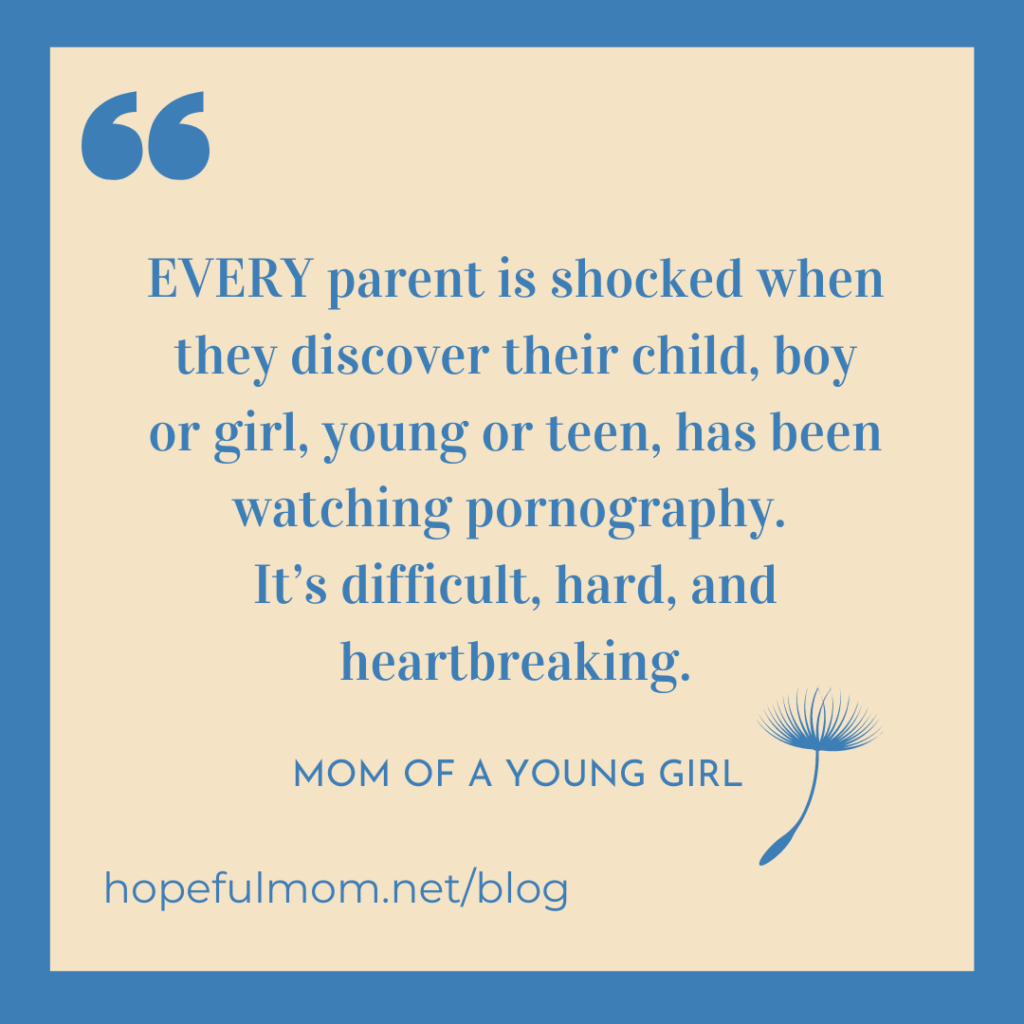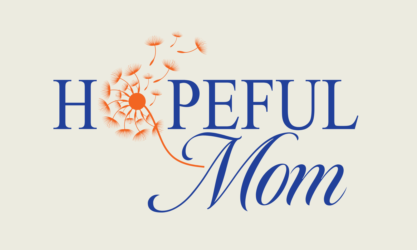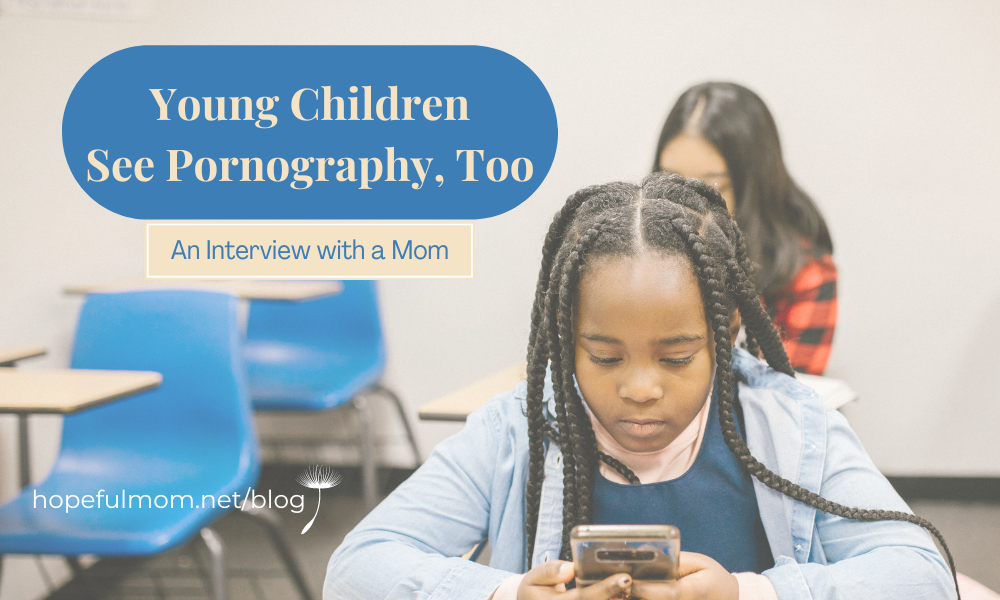Anne,* a friend of mine, contacted me recently about her daughter. That’s not unusual. Since I began Hopeful Mom, formerly Difficult Conversations, many friends have called, messaged, or emailed me concerning their children’s, spouses’, and even parents’ pornography use. I’ve heard stories of parents scrolling through their child’s history and finding pornography, stories of parents learning their child was molested by someone engaged with pornography, and stories of parents who’ve battled pornography in their home for years.
I’m grateful for this space where friends, as well as people I’ve never met, are comfortable explaining their dilemmas and expressing their emotions.
Anne was compelled to tell her story at Hopeful Mom. So, we sat down to chat. The following is from that conversation.
Barb: Anne, you and I have communicated a few times about your daughter. She was exposed to pornography at a young age and struggled with it. Can you give our readers some background information?
Anne: It’s been a long road as far as porn goes, starting about twenty years ago with my husband. My daughter was eight when she found it on her father’s phone. Then she went looking for it elsewhere. She searched for “animals mating” on YouTube. Then she searched on Google, and one thing led to another.
Barb: What’s your message for other parents?
Anne: You talk a lot about how pornography affects marriages and relationships and teenagers, but I think it’s helpful for parents to know that young children see pornography too. If there’s a parent out there with a young child who’s been exposed to porn and the child is confused but still drawn to it, they aren’t alone. Many other parents are dealing with the same situation.
Every parent is shocked to discover their child, boy or girl, young or teen, has been watching pornography. It’s difficult, hard, and heartbreaking. Here you have a little kid who, in your mind, is really innocent of the ways of the world. Then you hear something come out of their mouth, maybe a question that randomly pops up, and you think, “Wow. Where did that come from? How do you know about this?” Or you catch them watching porn or find out some other way. It’s a lot. It’s earth-shattering.

You can read all the articles and statistics, but that’s not as helpful as hearing firsthand from another parent. I hadn’t heard of an eight-year-old, especially a girl, doing this. I didn’t know what to do.
(For statistics regarding porn use, download Porn Stats from Covenant Eyes.)
I’m speaking up because I want parents to know they aren’t alone.
A mom of a young girl contacted me. She wants other parents to know that young children see pornography, too. If you're that parent, you're not alone. #hopefulmom #fightthenewdrug #pornharms Young Children See Pornography, Too Share on XBarb: That’s exactly why Hopeful Mom exists. We support each other and offer each other hope from a place of “I’ve been there.” And today’s message is that young children see pornography too.
Thanks for putting those emotions into words. Parents are hurt or in shock but choose not to talk about it because they also experience guilt and shame. Additionally, they fear tainting their child’s reputation.
Anne: Yes. I thought, “How am I supposed to tell, especially as a Christian? What will people think or say, especially my church family who watched my sweet, loving, beautiful girl grow up?”
Barb: We need to reframe how society, including Christians, views parents and children exposed to pornography. Young children see pornography. That doesn’t make them good or bad. It’s just a fact, and we need to address the issue, not ignore it or run from it.
What do you think are the best tips for parents when they discover their child’s pornography use? What did you do?
Anne: To be honest, I was like “What?!” My reaction was over the top. But once I got over the shock and calmed down, we talked. I told her I loved her. I reminded her it didn’t matter what she did. My love for her would never change. We cuddled and talked. She said, “I didn’t know what it was. And it made me more curious. I couldn’t help it.” It opened up a lot of dialogue. I bought some literature including a book you recommended, Good Pictures, Bad Pictures. I put safeguards on the laptops and phones and made a conscious effort to pay attention to what was on TV. I kept communication open. If she had a question, I didn’t water down the answer. (See this post for more tips on what to do.)
It still affects her psychologically. It tears my heart out.
Barb: What do you do in those moments?
Anne: If I can, I just hold her. I kiss on her. I love on her. I tell her, “We’ll go through whatever together.” I’m mindful of triggers.
Barb: Great point. As parents, we want to be empathetic and not shame or blame. Instead, be available to walk our children through these moments. (For more on combatting triggers, see this post.)
Any last thoughts?
Anne: Only that it’s important to me that other parents know they are not alone. Thanks for listening.
Barb: Absolutely. Sometimes all you need is someone to listen and say, “Yeah . . . I know.”
Anne: I agree.
*Not her real name.
Thanks for being here. Subscribe below for updates, a FREE PDF, and ongoing information regarding the release of my book, Sexpectations: Helping the Next Generation Navigate Healthy Relationships.
About the author
Barb Winters is the author of Sexpectations: Helping the Next Generation Navigate Healthy Relationships and founder of Hopeful Mom. She’s a certified mental health coach and offers one-on-one consultations for parents. For more about Barb, click "About" in the menu.



